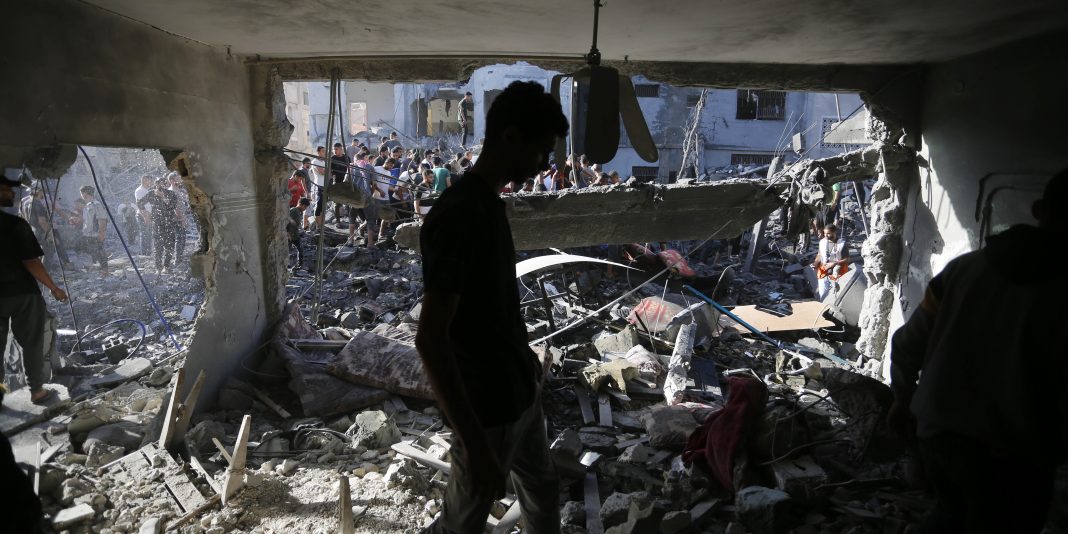American and British medical workers who were unable to leave Gaza were evacuated from the European Hospital in Khan Younis on Friday. However, three American members of medical missions chose to stay behind until Israel allows additional humanitarian workers to replace them. These medical workers, along with doctors and staff from other missions, continue to serve a population trapped in Gaza with no means of escape.
The missions had originally been scheduled to last two weeks before a fresh group of aid workers would rotate in with new supplies. However, after Israel seized and closed the Rafah border crossing into Egypt, nothing could enter or leave Gaza.
Adam Hamawy, a New Jersey doctor and Army veteran, is one of the three Americans who refused to leave. Hamawy insisted on remaining behind to protect and serve his patients. He stated that leaving all at once would reflect poorly on the United States as a nation. Hamawy’s decision to stay was consistent with American values of not leaving anyone behind.
Hamawy’s reputation as a doctor who treated now-Senator Tammy Duckworth during the Iraq War played a role in putting pressure on Israel and the State Department to find a way to free the medical workers. Duckworth credits Hamawy for saving her life.
Sixteen medical workers, including nationals from Egypt, Ireland, Australia, and Jordan, remain at the hospital. Other missions, some staffed with Americans, are still active elsewhere in Gaza. The staff and patients fear that without Americans in the hospital to serve as political shields against the Israel Defense Forces (IDF), the hospital may be destroyed, as the IDF has done to other hospitals in Gaza.
Monica Johnston, a nurse who initially held out against leaving without new aid worker replacements, eventually agreed to go. She expressed her anger at the politics and injustice surrounding the situation. The bombing around the hospital had intensified in recent days.
Rotating in a new mission has become crucial due to the blockade of medical supplies. Each new mission brings their own supplies, which are desperately needed. The refusal to allow basic humanitarian aid into Gaza is seen as a failure of the international community.
Dr. Mosab Nasser, who led the FAJR Scientific mission to the hospital, expressed his relief at being safely picked up by the US and UK embassies. He mentioned that two FAJR volunteers had remained in Gaza to continue their life-saving work. They would soon exit Gaza as part of the UN rotation of EMTs, in collaboration with the WHO. Dr. Nasser emphasized the coordination between FAJR Scientific and international entities, including the Department of State, US and UK embassies, and various organizations.
Some staff members who stayed behind, including Dorotea Gucciardo from Glia Equal Care, were critical of the international focus on Western doctors. Gucciardo believes that the focus should be on Israel’s ongoing occupation and assault on Gaza. She emphasized that the main objective should be to ensure that patients are being taken care of and called for an end to the war, siege, blockade, and occupation.
Dr. Haleh Sheikholesami, an American physician volunteering with Glia, highlighted the stark contrast between the situation of the medical workers and the Palestinians in Gaza. While the medical workers hope to eventually go home, the Palestinians have no such predictions. The Gazans continue to suffer under the ongoing crisis.
In conclusion, despite the evacuation of some medical workers from Gaza, three Americans chose to stay behind to continue serving their patients. The situation highlights the ongoing challenges faced by medical missions in Gaza due to political conflicts and blockades. The international community’s failure to provide basic humanitarian aid exacerbates the crisis. The focus should be on ending the war, siege, blockade, and occupation in order to bring relief to the people of Gaza.


